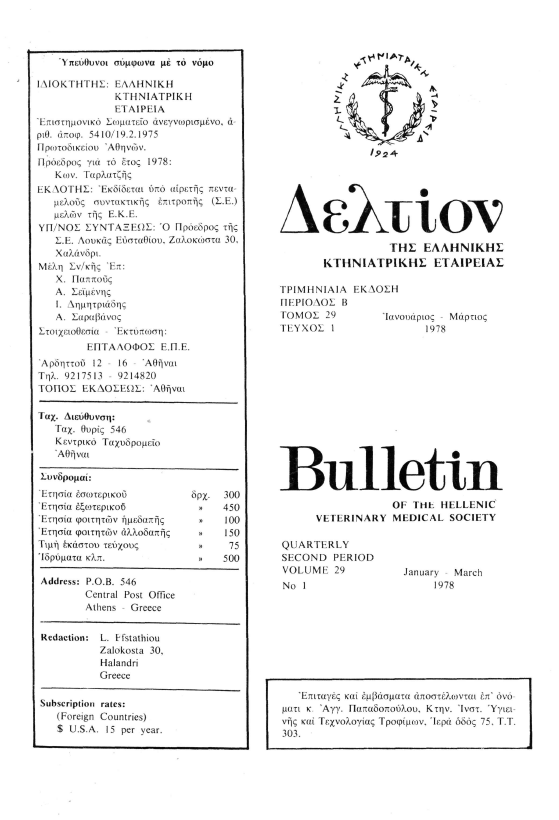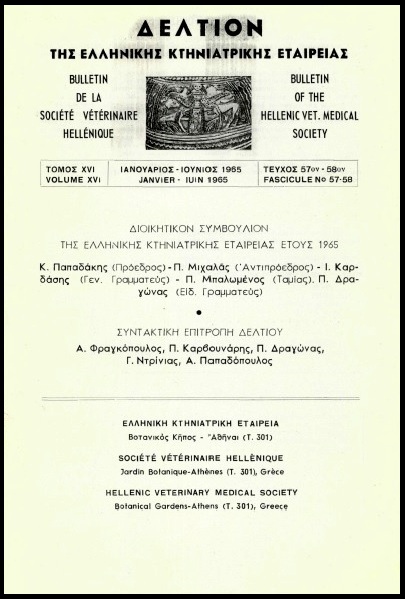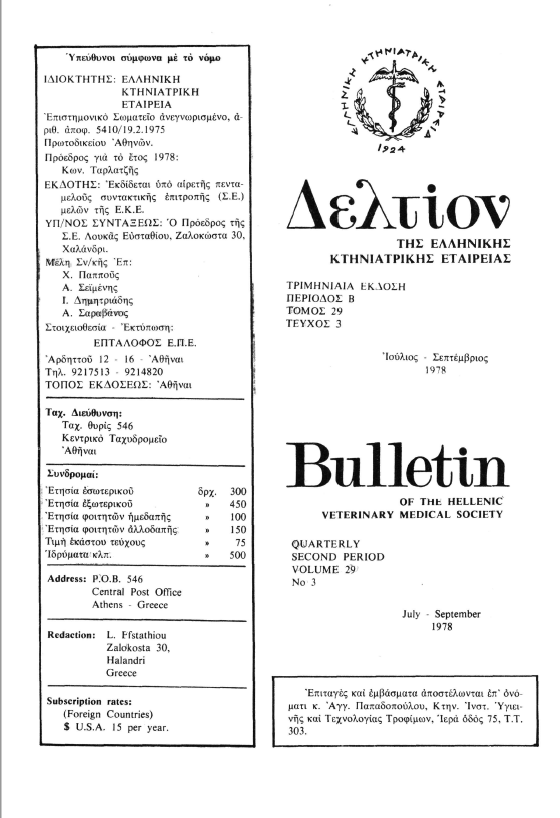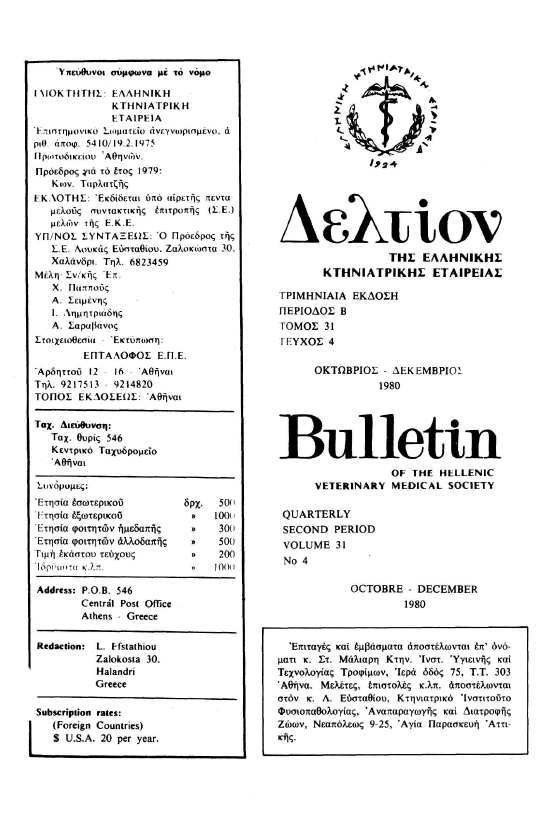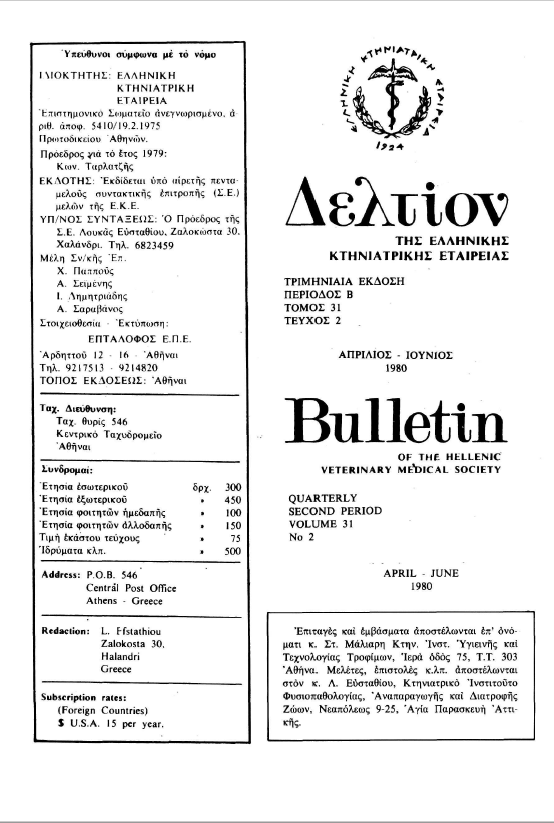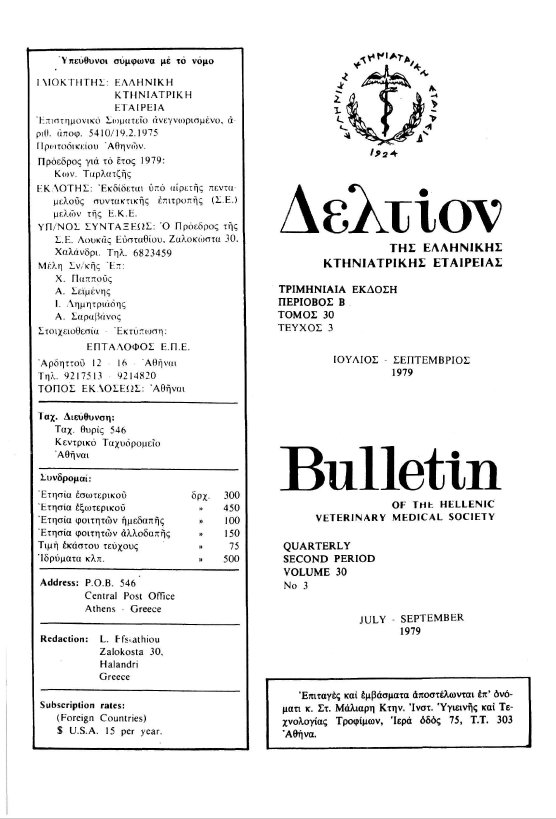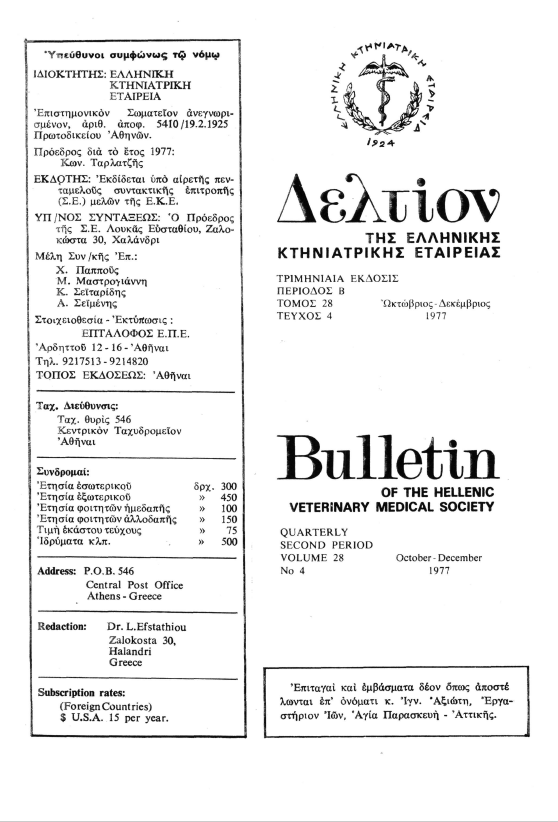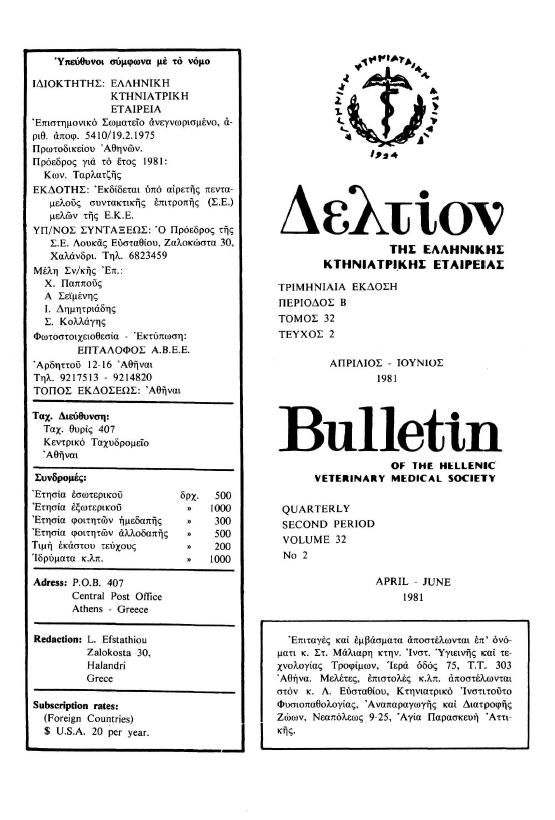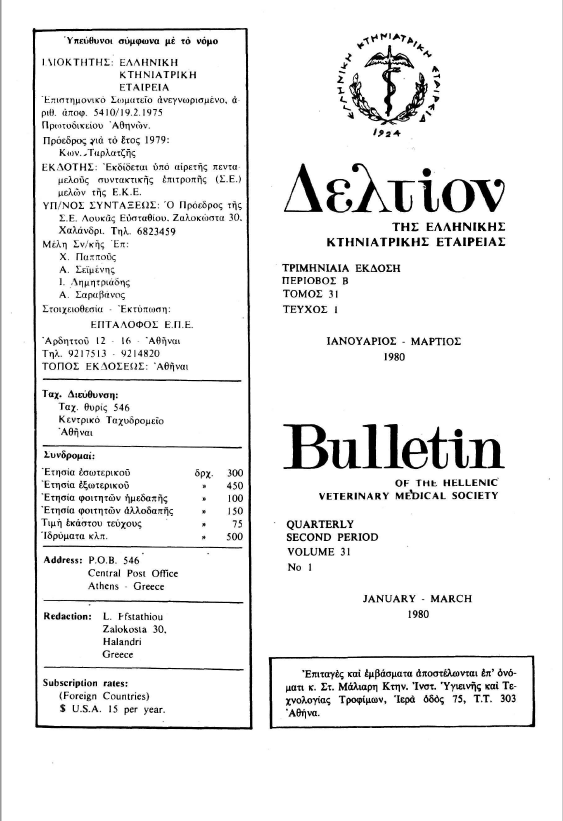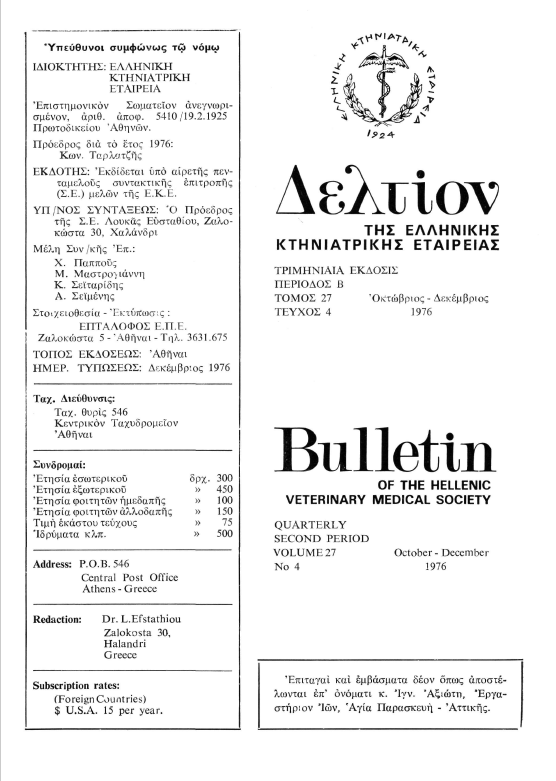The Veterinary Profession in Greece. Review of the Present and Prospects for the Future. Ill Vetarinary education: Scools and specialirations. B. Specializations of direct interest
Abstract
The improvement and expansion of education in recent years necessitated by the tremendous development and progress of science in the various fields created the need for comprehensive knowledge in new disciplines and for uncovering ways and means to solve urgent problems. Thus, new specializations emerged carrying with them obligations to increase and improve studies and research in new scientific fields. Many of today's specializations have a direct bearing on the veterinary profession, either because their subjects constitute part of the veterinary responsibility per se, or they are closely related to it, or the need for veterinarians in these specializations is urgent, or because they offer possibilities for further profitable studies and research. Nine of these specializations form the subject of this paper. They are: (1) Animal Science, (2) Development of Experimental Animals and Veterinary Care, (3) Public Health, (4) Military Veterinary Service, (5) Toxicology, (6) Radiation, (7) Veterinary Clinical Sciences, (8) Diseases of Exotic and Tropical Countries, and (9) Veterinary Medicine of Wild Animals. The purpose, opportunities, and education required for each of the Above specialization is discussed.
Article Details
- How to Cite
-
ΧΑΤΖΗΟΛΟΣ Β. Κ. (2019). The Veterinary Profession in Greece. Review of the Present and Prospects for the Future. Ill Vetarinary education: Scools and specialirations. B. Specializations of direct interest. Journal of the Hellenic Veterinary Medical Society, 29(1), 3–18. https://doi.org/10.12681/jhvms.21329
- Issue
- Vol. 29 No. 1 (1978)
- Section
- Articles

This work is licensed under a Creative Commons Attribution-NonCommercial 4.0 International License.
Authors who publish with this journal agree to the following terms:
· Authors retain copyright and grant the journal right of first publication with the work simultaneously licensed under a Creative Commons Attribution Non-Commercial License that allows others to share the work with an acknowledgement of the work's authorship and initial publication in this journal.
· Authors are able to enter into separate, additional contractual arrangements for the non-exclusive distribution of the journal's published version of the work (e.g. post it to an institutional repository or publish it in a book), with an acknowledgement of its initial publication in this journal.
· Authors are permitted and encouraged to post their work online (preferably in institutional repositories or on their website) prior to and during the submission process, as it can lead to productive exchanges, as well as earlier and greater citation of published work.

